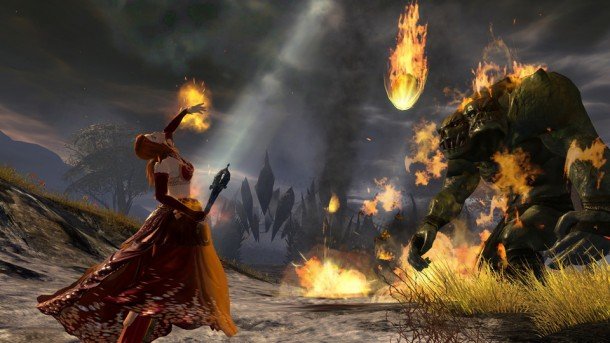ArenaNet: making an MMO involves "basically betting your company"

When everything works right for an MMO, it delivers a world full of content and adventures for players to dive into for months and years at a time. World of Warcraft and Guild Wars 2 are perhaps two of the genre's more notable accomplishments, but striking success isn't without a colossal cost to both development manpower and ballooning budgets—and if interest fizzles out, the losses can really hurt. In an interview with IGN , ArenaNet Game Director Colin Johanson stresses the steep risk studios face whenever tackling an MMO project.
"You're basically betting your company any time you decide that the thing you're going to make is an MMO," he states. "They take so long and so much money to make that either you're successful and you're going to do really well or you're not and your company's toast. If you have a really big backer, maybe you can survive that, but it's a huge risk."
Publishers traditionally use subscription systems to funnel into server upkeep and help recoup production costs, but the more popular free-to-play alternative has essentially turned into a standard for keeping players from leaving. The dwindling populations of subscription-based MMOs such as Star Wars: The Old Republic, The Secret World, and Tera saw a boost after a switch to free/microtransactional systems, so apart from the Azeroth-shaped titan in the room, it's clear that MMOs on the whole are pretty sensitive to the dangers of failure.
Check out the rest of IGN's interview for Johanson's take on the overall health of the MMO genre, Guild Wars 2's Ascended gear fiasco , and ArenaNet's next challenges.
Keep up to date with the most important stories and the best deals, as picked by the PC Gamer team.
Omri Petitte is a former PC Gamer associate editor and long-time freelance writer covering news and reviews. If you spot his name, it probably means you're reading about some kind of first-person shooter. Why yes, he would like to talk to you about Battlefield. Do you have a few days?


